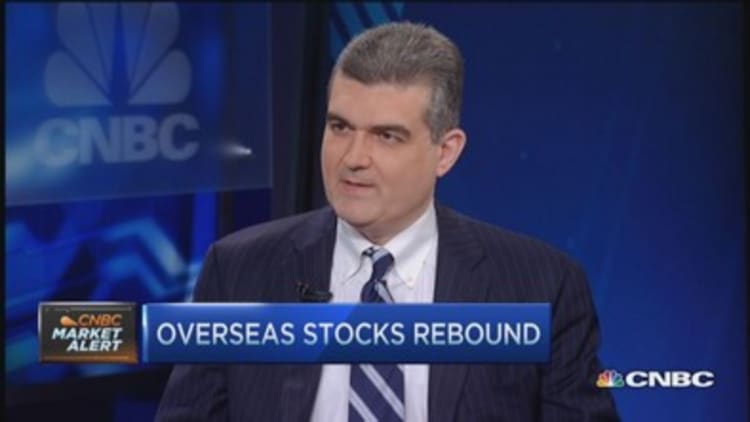
The euro is hurtling toward parity with the U.S. dollar, but even if the currency hits that psychologically important level, the parity party would not last long, analysts told CNBC on Wednesday.
The euro dipped below 1.06 to a nearly 12-year low against the greenback on Wednesday.
It did not make sense for the euro to trade at 1.40 to the dollar for cyclical reasons, Stephen Freedman, co-head of investment strategy at UBS, told CNBC's "Squawk Box." While the launch of the European Central Bank's bond-buying program on Monday initially drove the euro closer to parity, the economic effects of that quantitative easing should eventually put a floor under the currency, he added.
"FX markets are forward looking so QE is the news right now, but it's going to become old news relatively quickly and the market is going to start focusing on the fact that the euro zone is recovering," he said.
Read More Prepare for euro-dollar parity—and fast
Quantitative easing, drama over Greece's bailout program, the looming interest rate hike in the United States have created a perfect storm for the euro, said Boris Schlossberg, managing director at BK Asset Management.
However, he said there's a lot of "chunkiness" when the euro hits 1.05 to the dollar, and the trade could stall at the point and stage a counter rally.
"If you ask me where the stop would be, if it gets back above 1.10, then the whole idea of parity is probably out the window," he said in a "Squawk Box" interview.
Read More Nowhere but down? Euro reacts to QE
U.S. stocks plunged more than 1.5 percent to one-month lows on Tuesday, erasing gains for the year. The Dow ended the day down more than 300 points, while the S&P 500 fell by 35 points.
Market watchers pointed to the strengthening dollar as once source of the selloff. A stronger dollar makes U.S. goods more expensive in foreign markets and dilutes earnings when American companies bring profits back home.


